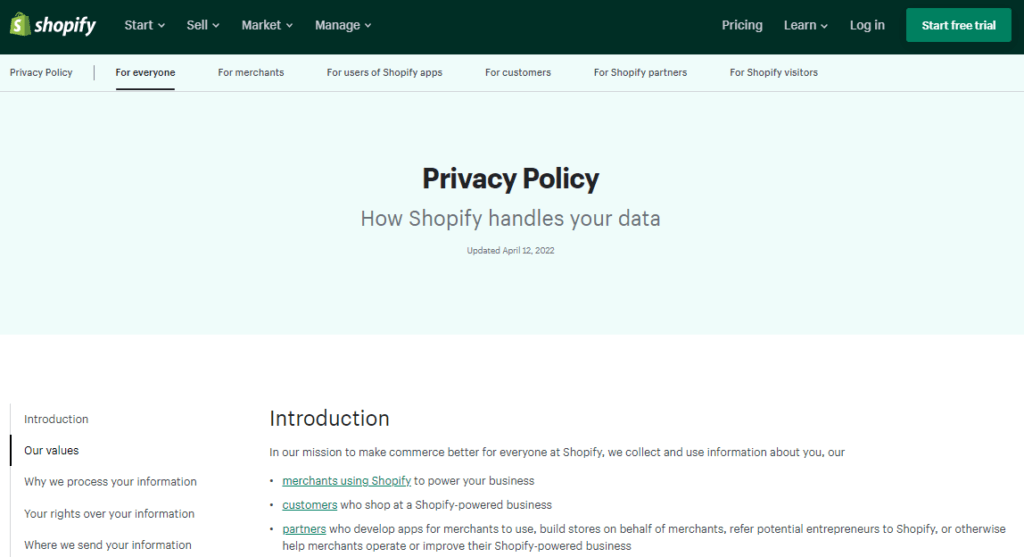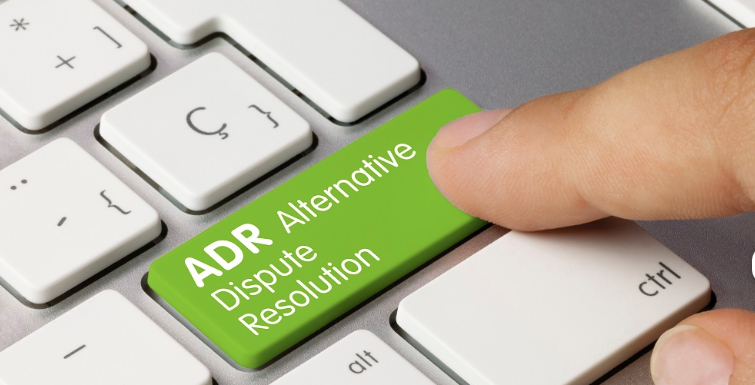
Shopify is a leading e-commerce platform that provides businesses of all sizes with the ability to create and manage their online stores. To ensure that merchants and customers have a smooth and secure experience, Shopify has established a series of policies and guidelines. As a seller, understanding and implementing the right store policies on the Shopify platform is crucial. Well-defined policies will play a vital role in the future operation of your store. In this article, we will cover essential aspects such as the Terms of Service and refund policies to help you stay compliant and maintain a trustworthy online store.
1. Terms of Service (ToS)
The Terms of Service outline the legal agreement between Shopify and its users. It covers important aspects such as account registration, responsibilities, and prohibited activities. Key points include:
1. Account Responsibility: Users must provide accurate information and are responsible for all activities under their account.
2. Prohibited Uses: Activities such as selling illegal products, violating intellectual property rights, and engaging in fraudulent behavior are strictly prohibited.
3. Termination: Shopify reserves the right to suspend or terminate accounts that violate the ToS.

2. Privacy Policy
Shopify’s Privacy Policy explains how the platform collects, uses, and protects personal information. This policy is crucial for ensuring compliance with data protection regulations such as GDPR and CCPA. Key elements include:
1. Data Collection: Shopify collects personal information from merchants and customers, including names, addresses, payment details, and browsing behavior.
2. Data Use: Collected data is used to provide services, process payments, and improve the platform. Shopify may also use data for marketing purposes with consent.
3. Data Protection: Shopify implements robust security measures to protect personal data from unauthorized access, disclosure, or destruction.

3. Acceptable Use Policy (AUP)
The Acceptable Use Policy sets the standards for what is and isn't allowed on the Shopify platform. It helps maintain a safe and respectful environment for all users. Key points include:
1. Prohibited Content: Users are not allowed to sell items that are illegal, offensive, or harmful, such as counterfeit goods, weapons, or hazardous materials.
2. Prohibited Actions: Activities such as hacking, spreading malware, and conducting phishing attacks are forbidden.

4. Refund and Return Policies
Establishing clear refund and return policies is essential for building trust with your customers. Shopify provides guidelines for creating these policies, which should cover:
1. Eligibility: Define which products are eligible for returns and under what conditions (e.g., within 30 days of purchase, unused and in original packaging).
2. Process: Outline the steps customers need to take to return an item, including contacting customer support and obtaining a return authorization.
3. Refunds: Specify how refunds will be issued (e.g., original payment method) and any associated fees.
5. Shipping Policy
A well-defined shipping policy helps manage customer expectations and reduces the likelihood of disputes. Key elements to include are:
1. Shipping Methods: List the available shipping options, including estimated delivery times and costs.
2. Handling Time: Specify how long it takes to process and ship orders.
3. International Shipping: Detail any restrictions or additional fees for international orders.
6. Cookie Policy
A Cookie Policy informs visitors about the use of cookies on your website. It is essential for transparency and compliance with data protection laws. Key points include:
1. Types of Cookies: Explain the different types of cookies used, such as essential, performance, and marketing cookies.
2. Purpose: Describe how cookies are used to enhance user experience, track website performance, and support marketing efforts.
3. Consent: Provide information on how users can manage their cookie preferences.

7. Dispute Resolution
Having a clear process for resolving disputes can prevent conflicts from escalating and protect your business reputation. Your dispute resolution policy should cover:
1. Contact Information: Provide details on how customers can reach out with complaints or issues.
2. Resolution Steps: Outline the steps you will take to address and resolve disputes, including timelines and possible outcomes.
3. Legal Recourse: Mention any legal options available to both parties if a dispute cannot be resolved amicably.

Conclusion
Understanding and adhering to Shopify’s policies is crucial for running a successful and compliant online store. By familiarizing yourself with the Terms of Service, Privacy Policy, Acceptable Use Policy, and other essential guidelines, you can ensure smooth operations and build trust with your customers. Regularly review and update your store policies to stay aligned with Shopify’s standards and regulatory requirements.
To learn more about exemplary Shopify stores and their policies, you can explore platforms like BigSpy. Studying these policies can provide insights into their operational philosophies and help you, especially as a newcomer to e-commerce, quickly get acquainted with the business.

For more detailed information, visit the Shopify Help Center and consult the specific policy documents provided by Shopify. By staying informed and proactive, you can create a positive shopping experience for your customers and foster long-term business success.
Frequently Asked Questions
How does Shopify ensure compliance with international laws?
Shopify provides tools and resources to help merchants comply with international laws, including tax settings, shipping regulations, and more. Merchants are responsible for ensuring their stores comply with all applicable laws.
What is Shopify’s policy on intellectual property infringement?
Shopify respects intellectual property rights and has a DMCA policy in place. If you believe your intellectual property rights have been violated, you can submit a complaint through the DMCA process outlined on Shopify’s Legal page.
Are there any prohibited products on Shopify?
Yes, Shopify has a list of prohibited products that cannot be sold on its platform, including illegal items, regulated products (like firearms and drugs), and others. The full list is available in Shopify’s Acceptable Use Policy.
Can Shopify suspend or terminate my account?
Yes, Shopify reserves the right to suspend or terminate accounts that violate their Terms of Service, engage in fraudulent activities, or fail to comply with Shopify's policies. Account holders will be notified of any actions taken against their accounts.
Does Shopify support multiple currencies and languages?
Yes, Shopify supports multiple currencies and languages. Merchants can set different currency and language options based on their target market to better serve global customers.
How does Shopify handle intellectual property disputes?
In the case of intellectual property disputes, Shopify will handle them according to its DMCA policy and other applicable laws. Merchants and users can initiate the dispute resolution process by submitting a formal complaint.